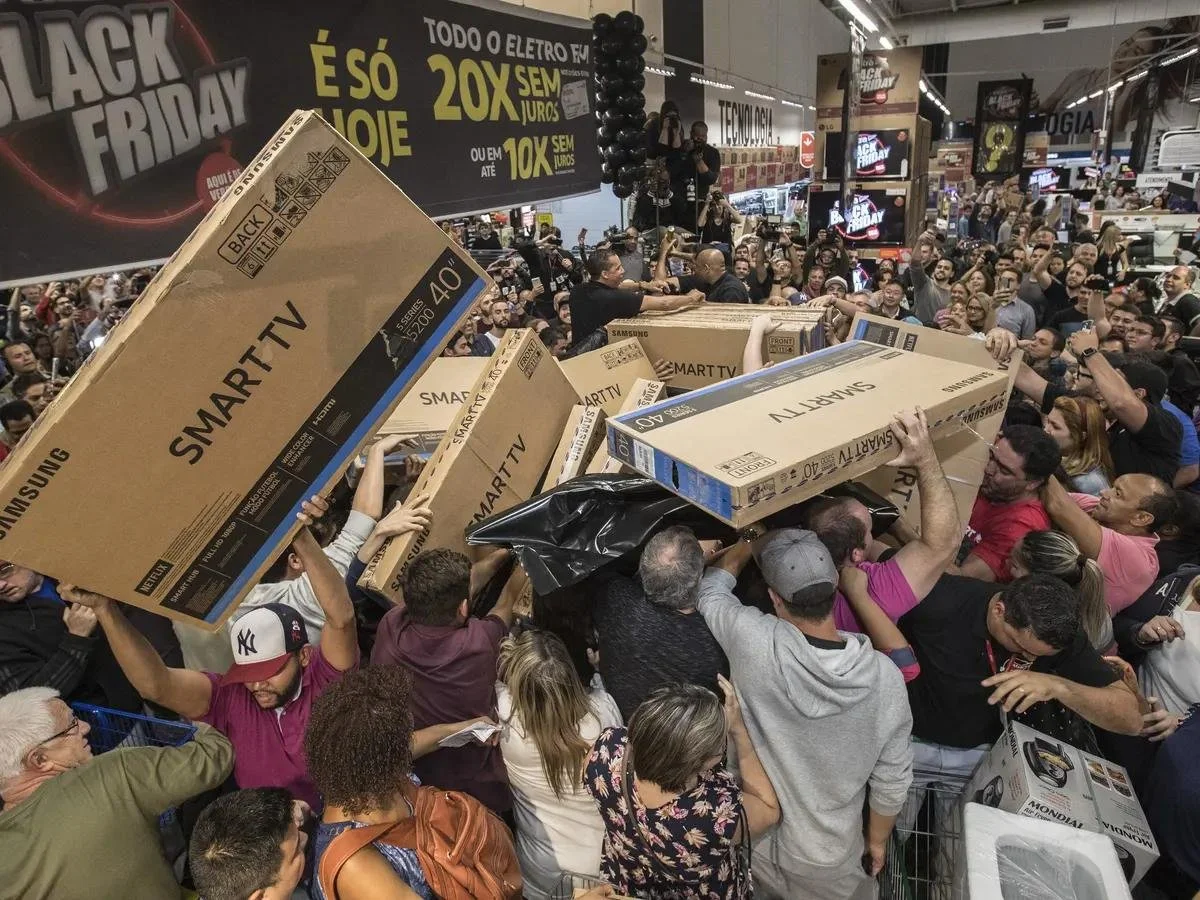the toll of Black Friday on people & planet
*photo taken from The Guardian.
Black Friday, the paroxysmal shopping event that marks the beginning of the festive shopping season, has become a ubiquitous phenomenon in the modern consumer-driven culture. What started as a marketing strategy to boost retail sales has evolved into a day characterised by long lines, crowded shopping centres, and corybantic shoppers eager to snag the best deals. However, behind the apparent joy of bargain hunting lies a troubling origin and impact on both people and the planet.
The term "Black Friday" first emerged in the mid-20th century, originating in Philadelphia to describe the chaos that ensued the day after Thanksgiving. It was used to depict the heavy and disruptive pedestrian and vehicle traffic that flooded the city as shoppers flocked to stores for festive sales. Over time, the narrative surrounding Black Friday evolved, and it became associated with the notion that retailers would operate at a financial loss (in the red) for most of the year, and it was only on this day that they would turn a profit (in the black). This marked the beginning of Black Friday as a day of massive sales and discounts.
While Black Friday may be a blessing for retailers, its impact on individuals can be detrimental. The race to secure the best deals has led to a dangerous and often violent shopping environment. Reports of stampedes, brawls, and even fatalities have become synonymous with Black Friday. The consumerist culture propagated by this day encourages impulsive and excessive spending, driving individuals into debt and fostering an unhealthy relationship with material possessions.
Moreover, the pressure on retail workers to accommodate the overwhelming influx of customers during Black Friday places an immense amount of stress on them… I know from unfortunate experience. Many employees are forced to work long hours, sacrificing their time during unsociable hours. The pursuit of profit often takes precedence over the well-being of those who backbone the success of the retail industry.
Beyond the human toll, the environmental impact of Black Friday is a growing concern. The mass production of goods to meet the demand for discounted items contributes to increased resource extraction, energy consumption, and waste generation. The fast fashion industry, in particular, experiences a surge in production during this time, exacerbating the already significant environmental issues associated with the textile industry.
The manufacturing and transportation of goods for Black Friday sales contribute to a substantial carbon footprint. The rush for quick deliveries and the expedited shipping methods employed to meet consumer expectations further intensify the environmental toll. The packaging waste generated by the excessive use of cardboard and plastic during this shopping aberration adds to the mounting ecological challenges.
Black Friday's emphasis on low prices and disposable consumer goods fuels a throwaway culture that has far-reaching consequences. Products purchased impulsively during this period often lack durability and longevity, leading to a cycle of rapid disposal and replacement. This not only contributes to the global waste crisis but also perpetuates the demand for new resources, perpetuating a destructive cycle of production and consumption.
As awareness of the environmental and social impacts of Black Friday grows, so does the movement towards conscious consumerism. Many individuals and organisations are advocating for alternatives to the rampant consumerism that defines this day. Initiatives such as "Buy Nothing Day" encourage people to resist the urge to shop on Black Friday, promoting mindful consumption and reflection on shopping and spending habits.
While Black Friday may have started as a seemingly harmless post-Thanksgiving tradition, its evolution into a consumerist furor has pervasive consequences. From the toll on individuals caught in the chaos of bargain hunting, to the environmental impact of excessive production and waste. Black Friday raises important questions about the sustainability of our consumption patterns. As we navigate the festive season, it's crucial to reflect on the true cost of the deals we have become accustomed to, and to consider more sustainable and mindful approaches to shopping. Ultimately, the shift towards conscious consumerism may hold the key to a more sustainable and equitable future for both people and the planet.
